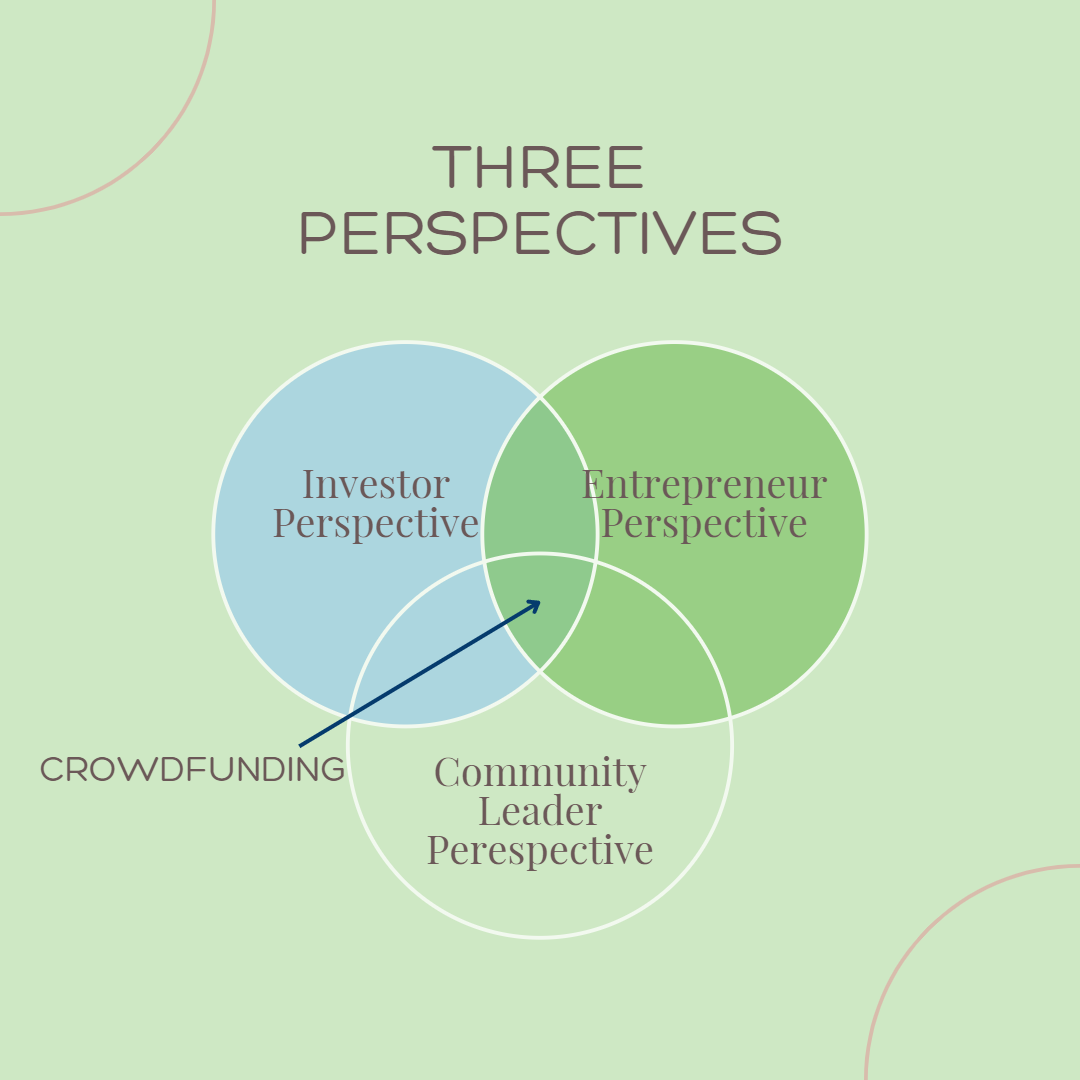This post was originally shared on Superpowers for Good.
Regulated investment crowdfunding is a powerful tool for building local capital in your neighborhood or town.

There are three perspectives I’ll discuss here:
-
Investor perspective
-
Entrepreneur perspective
-
Community leader perspective
For clarity, whenever I talk about crowdfunding today, I’ll be referring to the regulated investment crowdfunding on websites like Wefunder, Republic and Start Engine—and dozens of others. I’m not talking about GoFundMe or even the popular rewards crowdfunding sites Kickstarter and Indiegogo.
That said, there may be no better way for an entrepreneur to prepare for an investment crowdfunding round than to conduct a rewards campaign. We’ll talk about that another day.
Investor Perspective on Building Local Capital Via Crowdfunding
You and your next-door neighbor may disagree on the world’s biggest problems to prioritize, but it is easy to come together to strengthen your local community. Investing in local businesses is a great way to do that.
KingsCrowd is a company that tracks every crowdfunding campaign from every portal on its website. Currently, it lists 127 companies raising money from ordinary investors—not just the wealthy ones.
To find ones near your local community, choose the states near you. There may not be an offering listed in your neighborhood today, but that doesn’t mean there won’t be later this year.
Many small, local businesses use Honeycomb Credit or SMBX to raise money structured as loans or bonds to be repaid with interest over time. These offerings are designed to work quickly, in 30 to 90 days. As a result, there is a fairly rapid rotation; you should check back frequently if you’d like to invest in your local area.
Gail and I are fortunate to live in Jacksonville, Florida, a town rising in the crowdfunding ranks for a clear and specific reason. The Jessie Ball duPont Fund, a large local foundation headed by Mari Kuraishi, has partnered with Honeycomb Credit to back some of the local crowdfunding offerings here. Six deals have been completed here recently.
SMBX received a $500,000 grant from Washington, DC, enabling it to waive its fees on $5 million of capital raised there. The company is about halfway to that goal.
Entrepreneur Perspective on Building Local Capital Via Crowdfunding
For some businesses, crowdfunding may be the cheapest and fastest source of capital. When it isn’t, I invite you to consider using it anyway. Here’s why.
When you raise money from the crowd, you’re tapping your community for capital. Many of the people in your network live in your local community. You can attract the capital you need from people who are or who may become customers.
Gail and I invested in a local restaurant called Murray Hillbilly. It is clear across town, and yet we’ve spent multiples of our investment eating there. The food is excellent. Despite the small size of our investment—a loan made via Honeycomb Credit and backed by The Jesse Ball Dupont Fund—we feel genuinely invested and love to see the eatery thriving.
Imagine that scenario playing out dozens or hundreds of times. Would you like to have dozens or hundreds of investors who regularly shop at your store and tell their friends about it? Yes, I think you would.
And let’s talk about deal terms. When folks back local businesses, they see multiple benefits, not just the financial ones a bank might measure. While a banker may eat at your restaurant, the underwriter who makes loan decisions 100 miles or 1000 miles away likely doesn’t.
The people in your community want you to succeed. They’ll demand some compensation for using their money, but they’ll also assign value to the opportunity to be your customer as well.
Suppose you are successful enough to have lots of options for capital. In that case, it may still make sense to incorporate a layer of crowdfunded capital into your balance sheet to capture its benefits.
Community Leader Perspective on Building Local Capital Via Crowdfunding
As you think about economic development in your community, there are a lot of competing interests. The more you can help your local businesses thrive, the more your community will prosper.
Crowdfunding provides a benefit that virtually no other capital structure does. It allows community members to benefit financially from the success of a business domiciled in it.
Imagine a community that has been disinvested for years. With too little investment, some storefronts may be boarded up. Commercial and residential rents may be low. Crime may be up.
If a business opens in that community and thrives, it may attract other businesses. Stores are open for business. Some people in the community get better jobs. Rents begin to go up, helping those who own real estate.
If the community funds the business, anyone who chooses to participate can invest. This means that even folks who don’t own real estate and don’t get new jobs out of the local economic development could benefit directly.
Crowdfunding isn’t a silver bullet that prevents economic development from becoming gentrification that forces long-time residents out. Still, it is an arrow in your quiver as a local community leader to help the community come together, build together and prosper together. You can leave fewer people behind.
Additional Resources
This year, Andrew launched an initiative called the Local Investing Action Network, which I joined. We get together monthly under Andrew’s leadership to talk about local investing. We’re learning and collaborating.
The National Coalition for Community Capital (NC3), headed by Cameron Rhudy and chaired by Chris Miller, also works on forming community capital. NC3 includes the concept of communities of interest in its mission. NC3 has various resources to help you with your local investing strategies.
SuperCrowd23
As a Superpowers for Good reader, you are eligible for a half-price ticket. Early-bird ticket pricing will end soon, so get your tickets now.
If you’ve never made a crowdfunding investment, you may not think of this event as being for you. It is. In many ways, it is specifically for you to help you learn how to make wise, high-impact crowdfunding investments.
As you think about the value you create in your community by shopping locally or giving to local charities, let me encourage you to think about how local investing is another powerful way to build your local community. And SuperCrowd23 is a great way to learn more about that.
We’ll be giving away at least a dozen $100 microgrants to individuals chosen at random at the conference. You must participate to win! The funds enable you to invest for your own account in one of the ten companies selected to pitch at the event
Register for FREE to comment or continue reading this article. Already registered? Login here.
2

